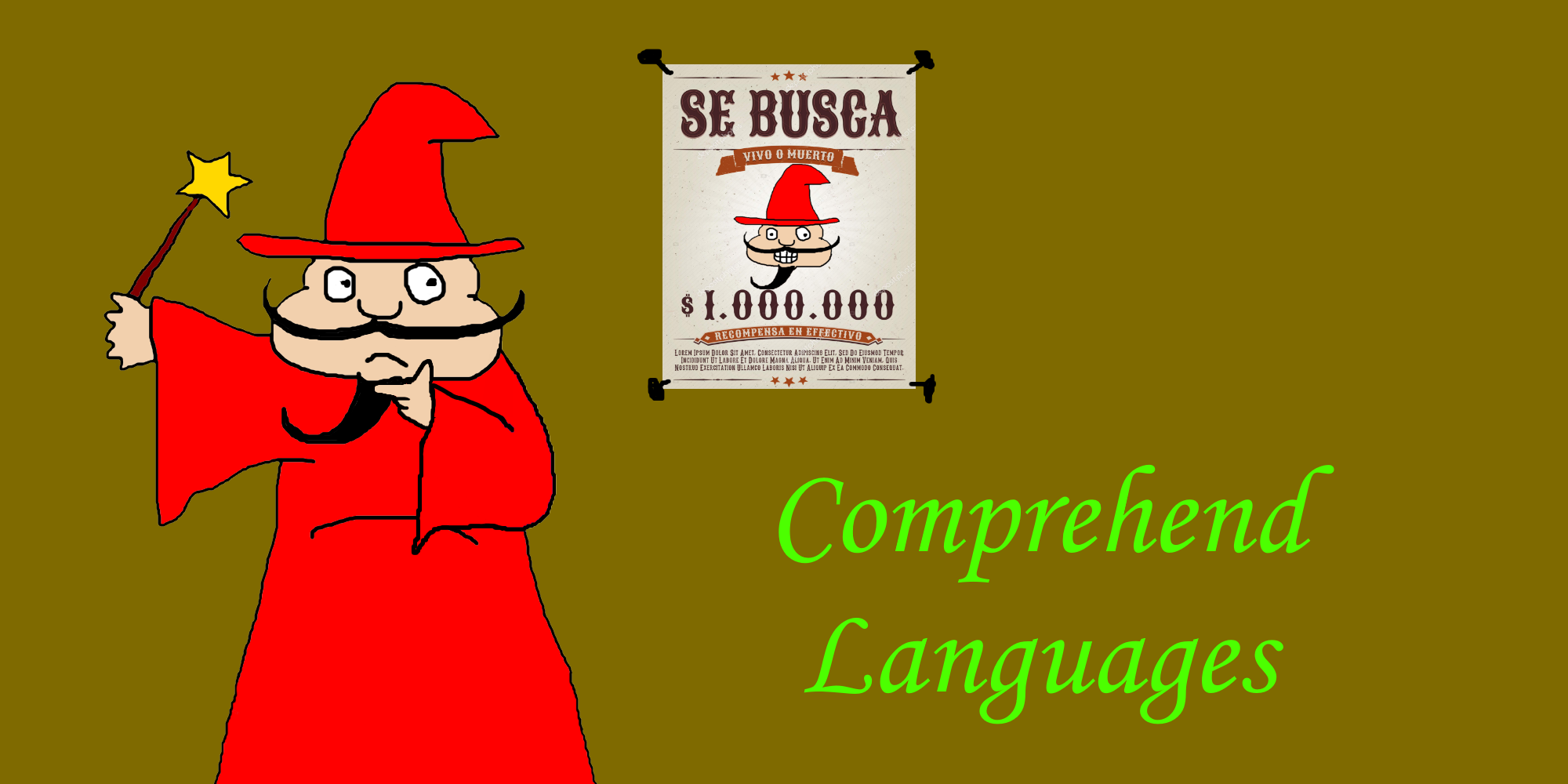Comprehend Languages: ¿Dónde está la biblioteca?
Usable By: Bard, Sorcerer, Warlock, Wizard
Spell Level: 1
School: Divination
Casting Time: 1 action
Range: Self
Duration: 1 hour
Components: V, S, M (a pinch of soot and salt)
For the duration, you understand the literal meaning of any spoken language that you hear. You also understand any written language that you see, but you must be touching the surface on which the words are written. It takes about 1 minute to read one page of text.
This spell doesn’t decode secret messages in a text or a glyph, such as an arcane sigil, that isn’t part of a written language.
Review by Sam West, Twitter:@CrierKobold
Languages are a largely flavorful tool offered to the various races and backgrounds in D&D. Most everyone uses common as a baseline in conversation. Occasionally you’ll encounter a band of creatures sharing an uncommon tongue, in which case a spare language might engage a one player who doesn’t normally deal as the party face. Comprehend Language is for the player who always wants to be that player: the party translator, if you will.
A 1st level ritual spell is about as free as you can get resource wise. Functionally, you’re getting unlimited access to speakable and readable languages for a spell in your spellbook or spell known. This means for the classes with ritual casting, bards and wizards, this is an easy inclusion if you’ve got a list of spells you’re comfortable falling back on regularly. Warlocks can get access to ritual casting in their invocations, meaning this can be something to consider if you head down that path, but sorcerers are left out and have very few spells known comparatively, meaning if you’re interested in Comprehend Language, you’ll probably want to be one of the three classes with ritual casting access.
I want to establish the importance of this being a ritual because if you’re spending spell slots on this, you’re probably wasting spell slots. This is an effect that largely will aid in exposition progression, character thematic development, or as a niche puzzle solving tool when you need to read ancient runes. In regards to that last point, if there are cryptic runes of an ancient language littered about, your DM probably put them there specifically because they knew you took Comprehend Language and could use it freely there, but that doesn’t mean the event still isn’t neat. It can be surprisingly tough to make the scholar archetypes feel like they fit into an adventuring world; translating long dead languages on relics to navigate through treacherous traps can add value to knowledge, and while history checks to roughly translate is probably good enough, Comprehend Languages can come through there.
If you want every language to talk to everyone and read everything, Comprehend Language is about as good as you can possibly get. That’s still not all THAT useful, though. For the ritual casters it's almost free to have, and while the practical uses of it are largely going to flesh out a character's feel, there may be a couple moments in espionage or dungeon delving games where you’ll be glad you picked this up.
Thank you for visiting!
If you’d like to support this ongoing project, you can do so by buying my books, getting some sweet C&C merch, or joining my Patreon.
The text on this page is Open Game Content, and is licensed for public use under the terms of the Open Game License v1.0a.
‘d20 System’ and the ‘d20 System’ logo are trademarks of Wizards of the Coast, Inc.
and are used according to the terms of the d20 System License version 6.0.
A copy of this License can be found at www.wizards.com/d20.



